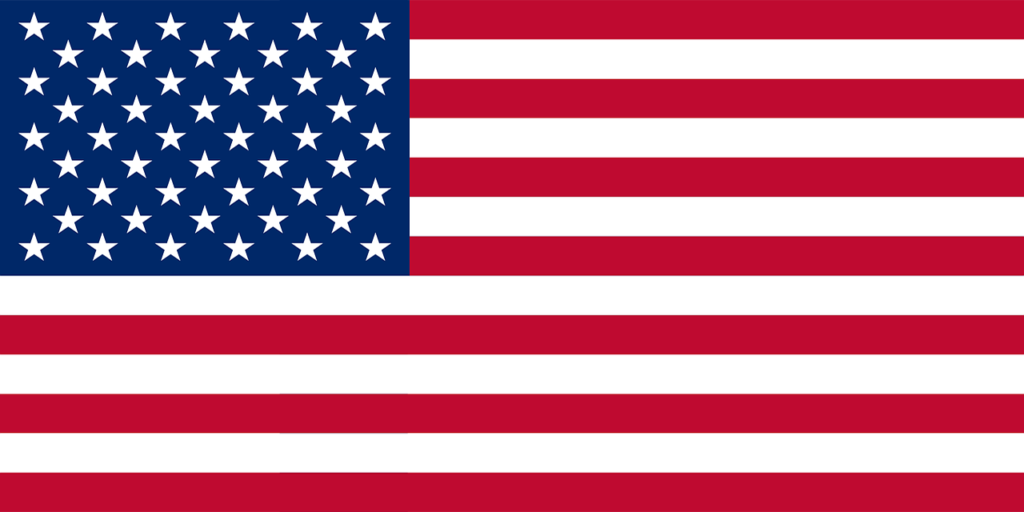
USA Gambling Regulations
Table of contents
Gambling Regulations for Online Casinos in the USA
When it comes to gambling, the United States has a long and storied history. Since frontier days and the wild west, gambling has been an integral part of U.S. history. However, while there is undoubtedly a demand for casinos and betting, some parts of the country are more open to it than others. These days, it seems that more states are against gambling than for it, which can make it hard for players.
The rules surrounding online casinos are even more complicated, thanks to the fact that both states and the federal government get to decide what is legal or not. If you live in the U.S. and want to know about online gaming, you've come to the right place. This article will dive into the gambling regulations for online casinos in the USA.
A Brief History of Online Casinos and Gambling in the United States
While gambling dates back hundreds of years in the U.S., online casinos have a much shorter lifespan. You may assume that this is because the internet has only been around for about 30 years, but even then, the United States has prohibited online gaming almost since the beginning.
Originally, online gambling started around 1996 when Antigua and Barbuda began issuing gaming licenses to casino websites. Since the island had much looser gambling laws, casino operators flocked to it so that they could get into this fledgling industry early.
At this time, online gambling was legal in the U.S., and many residents played on these initial websites. As the industry grew, so did American's appetite for playing. Over the next 10 years, the U.S. would become one of the largest markets for online casinos.
Then, the party came to an end in 2006 with the passage of the Unlawful Internet Gambling Enforcement Act (UIGEA), which effectively shut down all online gaming in the country. We'll get into the details of the UIGEA later on, but it served as the death knell for what was a thriving industry. Online casinos that were operating in the USA had to close shop, and those operating outside of America had to ban U.S.-based players from their sites.
While casinos made up the bulk of online gambling websites, they weren't the only way for players to place bets. In the U.S., sports betting and horse racing are also hugely popular, both in-person and online. In recent years, the federal government has eased restrictions on these types of gaming and allowed individual states to determine their own rules. We'll get into specific legislation later on, but some critical dates include:
- 2011 – The Department of Justice offered a new interpretation of the Federal Wire Act of 1961, which had prohibited online casinos. This new opinion opened the door for legal online casinos and poker rooms.
- 2018 – The Supreme Court strikes down the national prohibition of sports betting, both online and in-person.
- 2019 – The DOJ reverts to its pre-2011 interpretation of the Federal Wire Act, which effectively re-outlawed all online gaming.
As you can see, the country has kind of a love-hate relationship with online casinos and betting, and it seems that legal precedent can change on a whim. Currently, states are pushing forward with sports betting, but the future of online casinos is unclear.
Is Online Gambling Legal in the U.S.?
Technically speaking, yes, it is. However, if you're in the U.S. and want to gamble online, you may find it hard to do depending on the state in which you live. As far as the law is concerned, it is illegal to own or operate an online casino in the United States. That said, because there are many international online casinos, it's easy to find one that exists outside the country.
On an individual level, U.S. residents will not be prosecuted for gambling online. So, if you set up an account and start playing, don't worry about a SWAT team busting down your front door.
One problem U.S. residents can run into is that many international online casinos may prohibit American players due to the passage of the UIGEA in 2006. Some casinos do allow Americans, but many of them do not. Since the federal government seems kind of wishy-washy about the whole thing, it will likely be a while before all online casinos open up to U.S. residents.
Poker vs. Online Casinos USA
Although many online casinos offer poker tables, there is a distinct difference between a virtual poker room and a full-on casino. The primary distinction is that poker rooms only offer games like Texas Hold Em, Omaha, Stud, and more. Casinos, however, have other table games and digital slot machines.
In the U.S., some states allow poker rooms but not casinos. In some instances, these poker sites only allow cash betting for tournaments but not standard play. Overall, rules surrounding poker are a bit looser because players are not competing against the house. However, when talking about online gambling laws, most states bundle both poker and casinos together.
U.S. Legislation Regarding Online Casinos and Gambling
To help shed some light on the subject, let's look at three distinct pieces of legislation that have affected online casinos and gambling in America – the Interstate Wire Act, the Professional and Amateur Sports Protection Act, and the Unlawful Internet Gambling Enforcement Act.
Interstate Wire Act
Back in 1961, the Kennedy Administration passed the Interstate Wire Act to curb illegal betting by the mafia. At the time, Kennedy believed that the mob was using interstate wire transmissions to traffic money and illicit goods, using sports bets as a front for their activities. So, by prohibiting this type of betting, the government concluded that the law would diminish the mob's trafficking capabilities.
The Wire Act's primary issue was that the language used to describe bets changed within both of its provisions. In the first section, the law specifically mentions bets or wagers on sporting events or contests. Later in the act, the language only refers to bets in a general sense. This switch-up meant that the law could be interpreted as banning all gambling transmissions or just those related to sports.
From 1961 to 2009, the Department of Justice determined that the law prohibited all wired bets, including those over the internet. In 2009, New York and Illinois asked the DOJ to clarify how the Wire Act affected online lotteries. After considering the request and revisiting the law, the DOJ issued a memorandum that the Act only prohibited sports bets, not other forms of gambling. Shortly after that, some states like New Jersey and Delaware took swift action to open online casinos and lotteries to cash in on the change.
Then, in 2018, the Department of Justice reversed its decision, deciding that the Wire Act applied to all gambling. That decision was challenged in court. By mid-2019, the reversal was struck down, meaning that the Wire Act still only applies to sports gambling, not all forms of betting.
Professional and Amateur Sports Protection Act
In 1992, Congress decided that sports betting was a blight on the country and decided to ban it, using the PASPA. This one law made it illegal to place any kind of sports bets, whether in person or online. However, the Act came with a pretty substantial catch. In states where sports betting locations had operated for at least 10 years, those businesses could continue the practice unabated. This statute left four states untouched by the PASPA – Oregon, Delaware, Montana, and Nevada.
In Oregon and Delaware, pool betting (i.e., a lottery) was allowed, while Nevada permitted single bets. Montana was an outlier as its sports betting locations could operate as long as they were nonprofit. Everywhere else, though, the practice was banned.
Then, in 2018, due to the rise of daily fantasy sports betting, the Supreme Court struck down PASPA as unconstitutional. This decision meant that sports betting was now legal in all 50 states, both online and in-person. That said, each state could still determine the legality of online wagers, as the Wire Act was still in force.
Unlawful Internet Gambling Enforcement Act
Although the UIGEA effectively shut down online casinos in the U.S., its language is somewhat ambiguous and hard to pin down. What makes this Act even more egregious is that it was tacked onto a port safety bill rather than going to Congress on its own. Had it been introduced as independent legislation, it likely would not have passed.
The UIGEA specifically prohibits businesses from accepting payments related to bets or wagers over the internet. As we mentioned, while online gambling is technically legal for individuals, it is illegal to operate an online casino, thanks to the UIGEA.
State Regulations Regarding Online Casinos USA
While federal laws do apply to all 50 states, each state can set its own rules and regulations related to online casinos and gambling. Many states have laws that specifically outlaw in-person casinos, but they don't necessarily have any legislation related to online casinos. In those cases, gambling over the internet is technically legal because it is not specifically illegal.
Another point to consider is that states change their laws all the time. So, even if a state has made online gambling illegal, it could reverse the decision later. Here is a breakdown of the states where online gambling is explicitly legal. Some states only allow sports betting, while others enable sports and casinos.
- Colorado – Online sports betting
- Delaware – Online casinos
- Illinois – Online sports betting
- Indiana – Online sports betting
- Iowa – Online sports betting
- Michigan – Online casinos and sports betting
- Montana – Online sports betting
- Nevada – Online poker and sports betting
- New Hampshire – Online sports betting
- New Jersey – Online casinos and sports betting
- Oregon – Online sports betting
- Pennsylvania – Online casinos and sports betting
- Rhode Island – Online sports betting
- Tennessee – Online sports betting
- Virginia – Online sports betting
- West Virginia – Online casinos and sports betting
Beyond these 16 states, another five states (and one territory) technically allow online casinos and gambling because they have no laws prohibiting them. These states include Alabama, the District of Columbia (Washington D.C.), Kentucky, New York, Ohio, and South Carolina. Only Washington state has made online gambling a felony, although there are no cases of individuals going to prison over it.
U.S. Resources for Responsible Gambling and Gambling Addiction
While online casinos can be fun and engaging, they also make it easy to overdo it and become addicted to gambling. Fortunately, there are many resources available for U.S. residents struggling with gambling addiction. Here is a breakdown of the various options for responsible gaming in the United States:
National Problem Gambling Hotline
This is a free and 100-percent confidential helpline for anyone who needs assistance. Gamblers can call anytime, day or night, and get connected with local health and government organizations. The number is 1 (800) 522-4700.
Gamblers Anonymous
Sometimes, the best way to get over an addiction is with a support network of individuals who have shared similar experiences. Gamblers Anonymous provides a safe and open environment for gamblers to share their struggles with others. As the name implies, all participants remain anonymous, allowing them to open up and speak freely. There are no fees to join and no dues to maintain membership. Individuals can participate in one meeting or visit groups regularly. Find out more about the organization and meeting locations online here.
National Council on Problem Gambling
This organization offers the most comprehensive information on responsible gambling in the United States. Its website is full of resources, including local assistance, a counselor directory, and a complete list of treatment facilities by state. If you know someone with a gambling problem, you can find out more details and have them conduct an online screening to determine if they need immediate help. Check out the website here.







